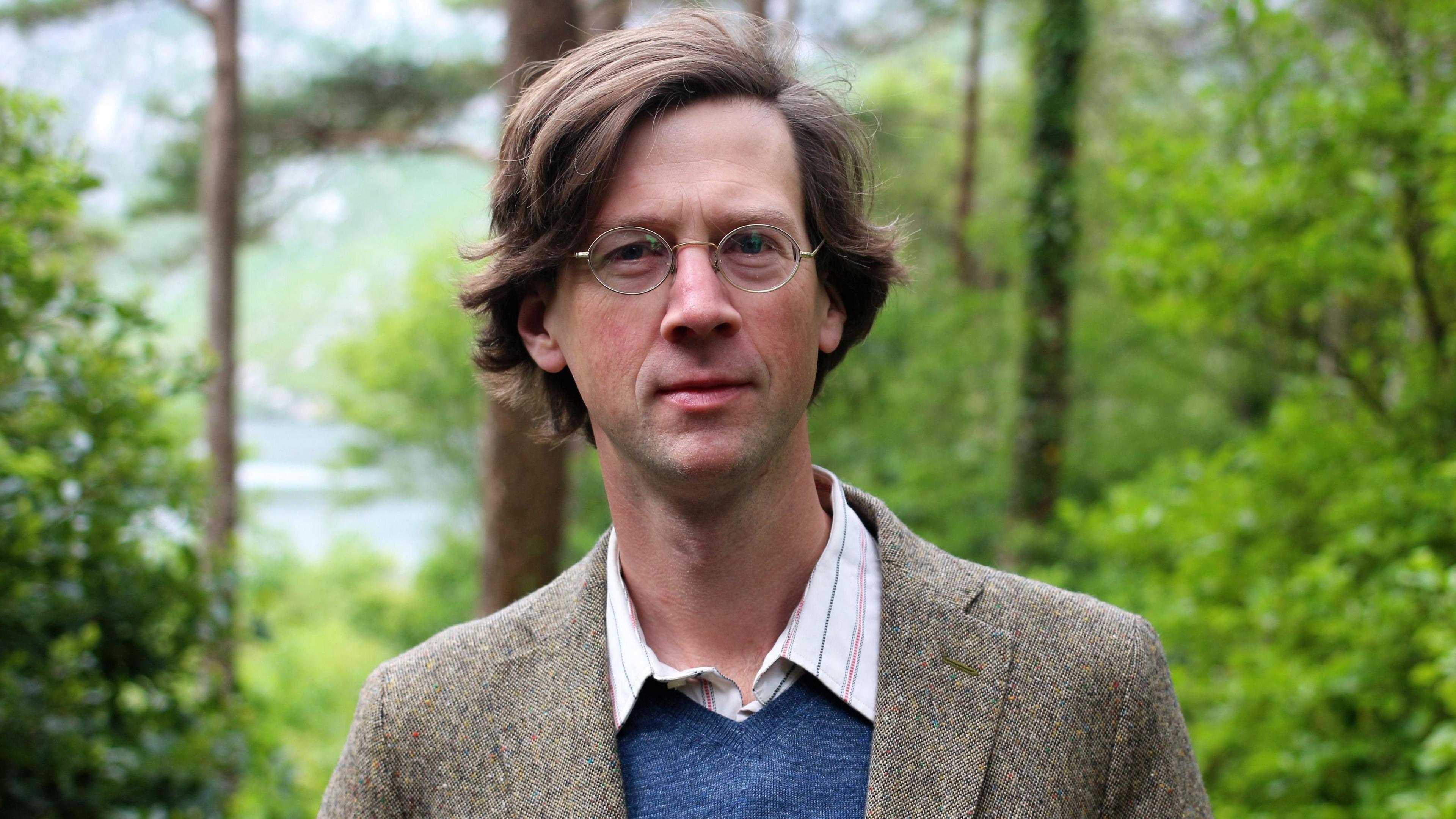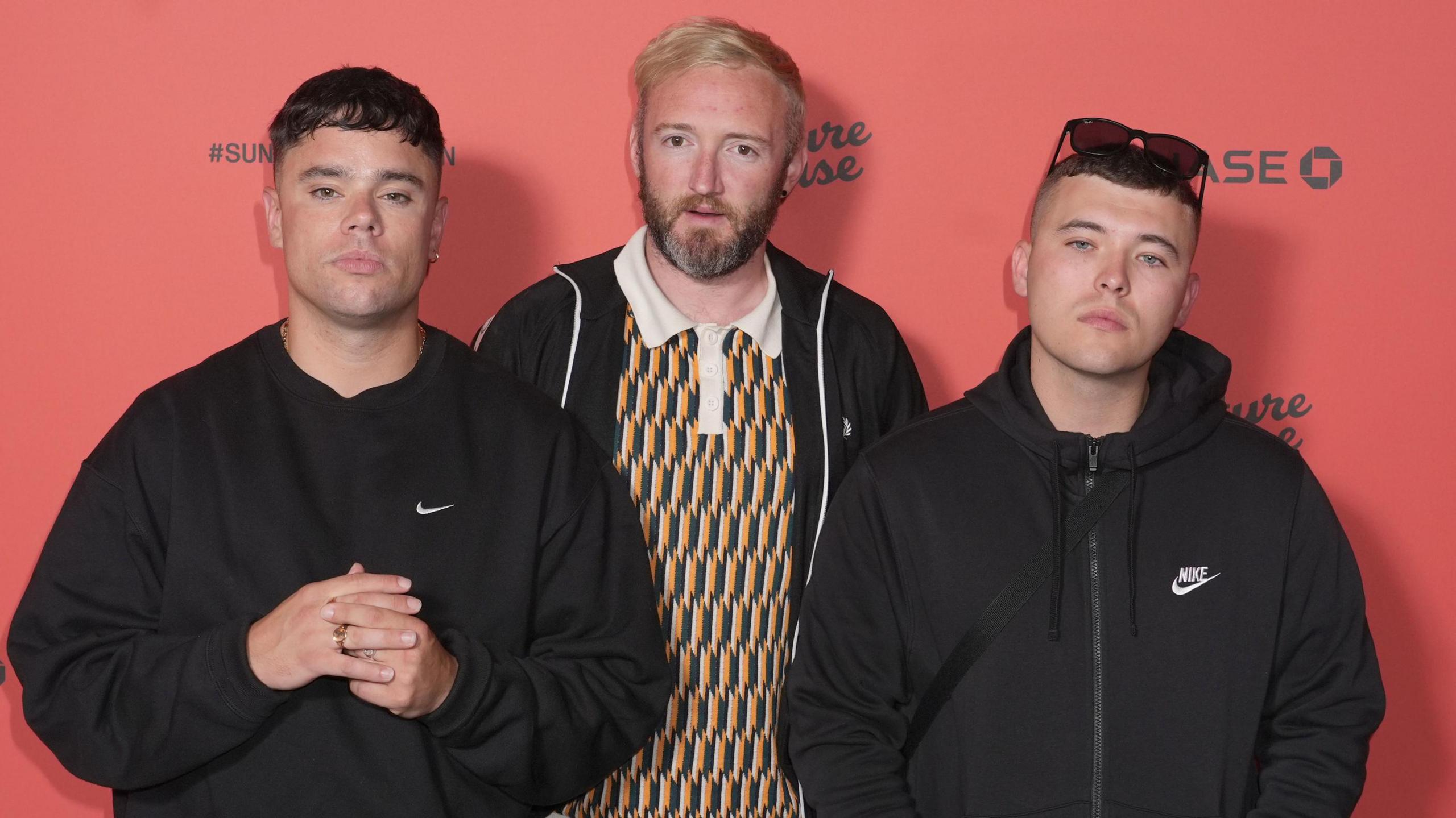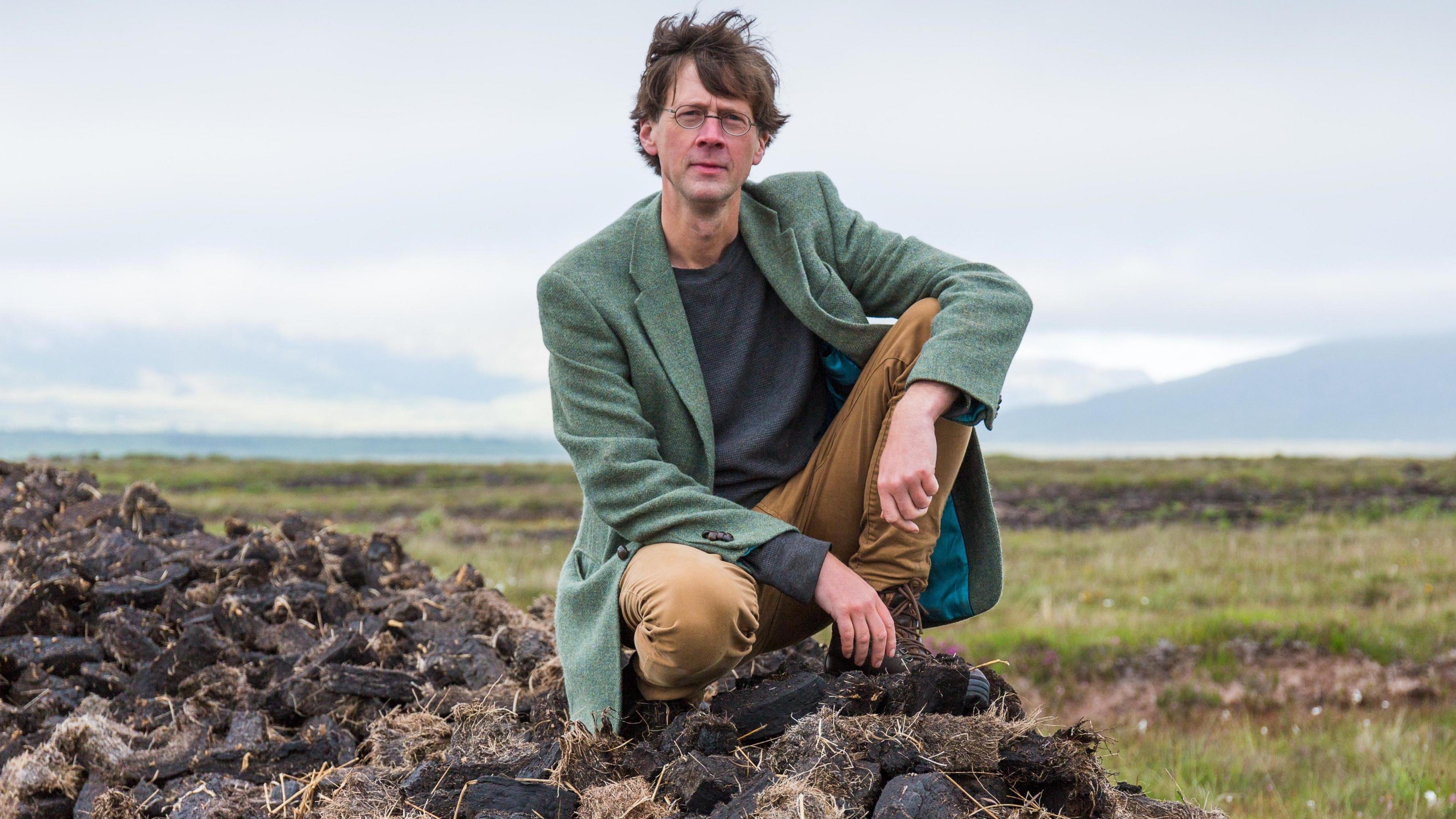'A trailblazer': Broadcaster Manchán Magan dies aged 55

Manchán Magan was known for his esoteric explorations of the Irish language and landscape
- Published
Writer and broadcaster Manchán Magan has died at the age of 55, his family has confirmed.
Mr Magan used his books, documentaries and TV shows to explore the Irish language, culture and landscape.
Taoiseach (Irish prime minister) Micheál Martin described him as "a passionate advocate" for the Irish language and culture, adding that his work "illuminated the richness of Ireland's landscape, history and heritage".
In September, Mr Magan told RTÉ that he had terminal prostate cancer.
His family has confirmed that he died in Dublin on Thursday evening.
He is survived by his wife Aisling, his mother Cróine and his three siblings.
Mr Magan was born in 1970 and was raised in Donnybrook, Dublin.
He began his broadcasting career making travel documentaries.
He made a number of TV series, including No Béarla - a documentary series about travelling around Ireland speaking only Irish.
Mr Magan was also a newspaper columnist and presented radio programmes on RTÉ Radio 1.
He hosted a podcast, the Almanac of Ireland, which investigated "the quirks, conundrums and wonders of Ireland" - some episodes described traditional celebrations of Celtic holidays like Imbolc and Samhain, while others explored the insights that can be gleaned from local placenames.
In addition, he wrote a number of books, including Thirty Two Words for Field: Lost Words of the Irish Landscape.
His most recent book, Ninety-Nine Words for Rain (and One for Sun), was published in September.

Kneecap say Manchán Magan "was the foremost cultural ambassador for our generation"
Mr Magan appeared in Irish-speaking rap trio Kneecap's music video on a track called Drug Dealin Pagans.
The Irish-speaking rap trio Kneecap posted on social media that Mr Magan was "instrumental in the resurgence of Irish language and culture".
Last December, Mr Magan joined the group on stage during their headline show in the SSE Arena in Belfast dressed as a druid with antlers and a long robe.
The trio added that Mr Magan, "perhaps unwillingly", was the "foremost cultural ambassador for our generation".
'Gifted storyteller'
Irish broadcaster TG4 said Manchán Magan was a "gifted storyteller" and a "deep thinker".
TG4 said Mr Magan had a long history with the broadcaster from its inception.
It added that Mr Magan has "left a remarkable legacy that will continue to inspire future generations, through his deep and unique exploration of language, culture and the Irish landscape".
'Knowledge and madness'

Mr Magan used his work to explore the Irish language, culture and landscape
University College Dublin, where Mr Magan studied, said he was "one of Ireland's foremost voices on language, culture, and landscape".
Irish artist and podcast host Blindboy Boatclub said he was "heartbroken" by the news.
In a post on social media, he said: "The amount of knowledge and madness that we've all lost now."
Another Irish artist, Dee Mulrooney, described Mr Magan as a "trailblazer" and "a man on a mission".
"What a legacy he has left behind," she posted.
RTÉ broadcaster Fiachna Ó Braonáin said Mr Magan believed in language, nature, humanity and ancient culture "as a portal into enlightenment".
Speaking to the RTÉ's Oliver Callan programme, he said Mr Magan was "born to explore".
"He didn't just travel to sightsee, he travelled to dive deeply into the way the custodians of those lands lived. That's what also informed his immeasurable grá (love) for Gaeilge (Irish) as well," he said.
"What he has done for us on that can't be measured. An amazing, amazing man."